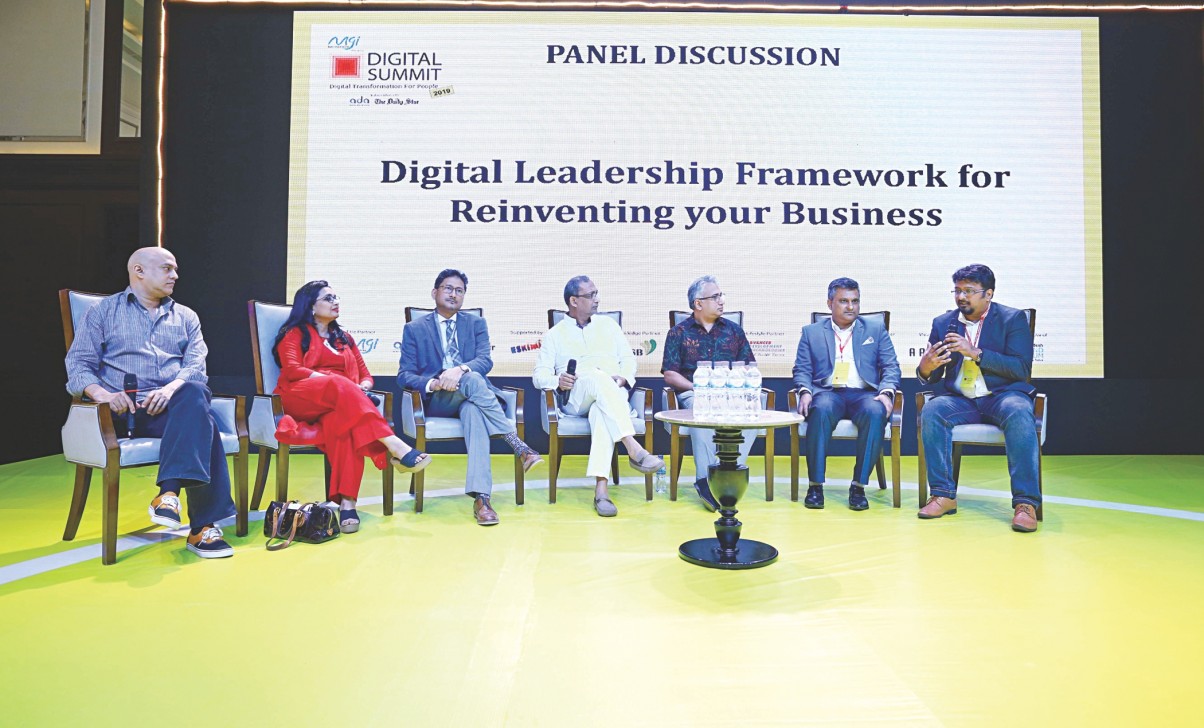Cultural sync core of digital campaigns

Top management tiers need to consider cultural viewpoints before using the huge amounts of user data being generated daily in the digital space for marketing purposes, all to get better feedbacks, experts said yesterday.
Technology is changing cultures and human behaviour all over the world but a single misinterpretation can damage the equilibrium, they said, drawing the attention of marketers at Digital Summit 2019 at Le Meridien Dhaka.
Bangladesh Brand Forum in association with ADA (analytics, data, advertising) and The Daily Star organised the daylong summit, presented by the Meghna Group of Industries and attended by a few hundred professionals, with the theme “Digital Transformation for People”.
“We shouldn’t turn blind with technology,” said Dr Syed Ferhat Anwar, director at the Institute of Business Administration at the University of Dhaka, while moderating a session styled “Digital Leadership Framework for Reinventing Your Business”.
In the digital era, technology is a very important tool for promoting campaigns but marketers need to first think about cultures, he said.
Asif Iqbal, deputy managing director at the Meghna Group of Industries, said people are now talking a lot about the fourth industrial revolution, artificial intelligence and machine learning.
But before moving into that sphere, businesses need to adopt technologies from all aspects, he said.
“Companies are sitting on data hubs but sometimes they cannot decide on what they will do with this data and how they will have to use it for their marketing and branding,” said Iqbal, a veteran marketing expert in the country.
“That thinking needs to come from the top first,” he said, adding, “Technology is also important but to me that comes after culture.”
He said legal processes have always lagged behind technologies.
That is why Facebook, Google, Instagram and other social media platforms are taking away thousands of dollars every year but Bangladesh’s legal system was failing to reap benefits off it for the country, he said.
Yasir Azman, deputy chief executive officer at Grameenphone, said digitalisation was defined by the way technology improves service delivery systems and makes processes easier and here company leaders must have a strong role.
“How we are transforming our organisation, that is also a very important perspective from the leader’s point of view,” he added.
He said not all products they developed were to make money as some were solely for branding, something shining the spotlight on country and company cultures.
Mohammad Ashraful Alam, chief operating officer at BRAC-Aarong, said they had already entered the digital space having started adopting the transformation since 2014. “(Here) we have taken customer satisfaction as the first priority,” he said.
Aarong is going beyond the local sphere for which they are focusing on global perspectives too, he said.
Maliha Quadir, founder and managing director at Shohoz, said people were now increasingly relying on digital platforms as information was available and easy to access here, prompting digital companies to become more transparent.
Urfi Ahmad, brands and communications director at Banglalink, and Protik Basu, managing partner at WeAddo, also spoke.
Shariful Islam, founder and managing director of Bangladesh Brand Forum, inaugurated the summit, highlighting marketers who were trying to embrace digital aspects in every facet of brand-building activities.
“We need to realise that the human connection needs to be at the centre of everything that marketers do to thrive in this new ecosystem,” he said.
